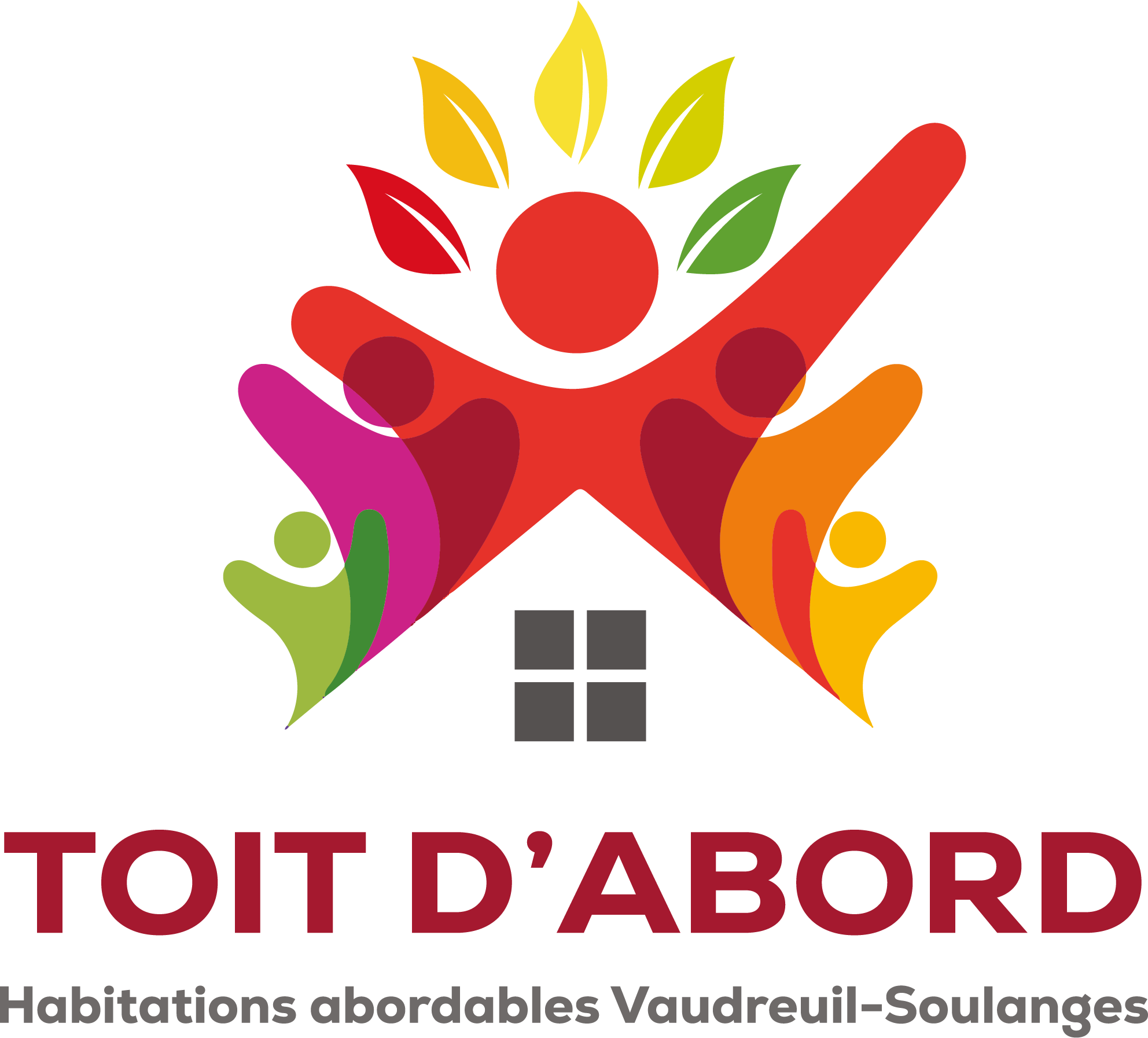Housing
Bien se préparer en vue du renouvellement de votre bail
Des services en logement disponibles sur le territoire
Les effets de la crise du logement touchent désormais toutes les sphères de la population. La MRC et le Comité logement Vaudreuil-Soulanges lancent une série d’outils contenant des informations générales, des conseils pratiques et des rappels réglementaires afin d’aider les locataires, les intervenant.e.s et employé.e.s municipaux à se diriger vers la bonne ressource pour faire face aux différents cas de figure qui pourraient se présenter à eux.
N’hésitez pas à consulter les onglets ci-dessous.
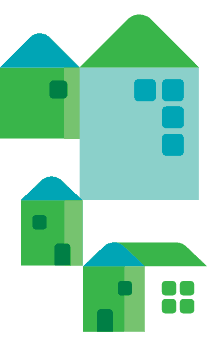

Recherche de logement
- Les logements abordables sont difficiles à trouver. N’attendez pas à la dernière minute pour effectuer vos recherches.
- Parlez-en à votre entourage et visitez, Marketplace, kijiji.ca, lespac.com et louer.ca.
- Essayez de signer un nouveau bail avant de résilier votre bail actuel. Mieux vaut rester au même endroit pour une année de plus que de vous retrouver sans logis.
- Préparez-vous en réalisant un budget et une liste de vos anciens propriétaires.
- Ces références pourront démontrer votre capacité de payer.

Augmentation de loyer
-
- Le propriétaire doit vous envoyer un avis de modification au bail écrit 3 à 6 mois avant la fin du bail pour un bail de 12 mois ou plus.
- Vous avez 1 mois pour répondre par écrit à compter de la réception de l’avis, sinon il sera considéré que vous acceptez l’augmentation et le renouvellement de votre bail.
Vous pouvez :
- Accepter le renouvellement du bail avec ses modifications.
- Refuser et proposer un autre montant si vous croyez que l’augmentation est injustifiée et renouveler votre bail. Vous pouvez contacter Mon logement, mes droits pour vous assister
dans votre démarche. Votre propriétaire pourrait s’adresser au Tribunal administratif du logement pour faire fixer le prix du loyer. - Ne pas renouveler votre bail et quitter le logement à la fin du bail.
- Il faut toujours conserver des preuves écrites et datées de vos échanges!
- Soyez vigilants à toute autre modification qui pourrait accompagner l’augmentation de loyer.
- Attention : les immeubles de 5 ans et moins ne sont pas soumis à des limites d’augmentation de loyer, sauf pour les baux signés après le 21 février 2024 ou les immeubles prêts à l’habitation après cette date. Ceux-ci auront l’obligation de déclarer le loyer maximal dans 5 ans.

Reprise de logement et éviction
-
Reprise de logement
- Pour un bail de plus de 6 mois, le propriétaire doit vous envoyer un avis de reprise de logement 6 mois avant la fin de votre bail.
- Vous avez 1 mois pour y répondre à compter de la réception de l’avis, sinon vous serez mis en position d’avoir refusé de quitter le logement.
- Vous avez le droit de refuser et/ou demander une indemnité : frais de déménagement, frais de branchement des services, etc.
- Devant le Tribunal, le propriétaire aura le fardeau de prouver qu’il entend réellement reprendre le logement pour la raison mentionnée dans son avis.
- Aucune reprise ne peut être faite si vous avez 65 ans et +, que vous habitez votre logement depuis plus de 10 ans et que vos revenus respectent la limite établie pour l’octroi d’un logement à prix modique. Informez-vous sur les exceptions à cette règle!
Éviction
Depuis le 6 juin 2024 et pour une période de 3 ans, toute éviction pour subdivision, agrandissement substantiel ou changement d’affectation est interdite.

Le dossier de crédit
Il est préférable d’obtenir par vous-même votre dossier de crédit en biffant les informations sensibles (NAS) et en faire une photocopie au besoin.
Pour faire une étude de crédit, le propriétaire :
- Doit avoir votre consentement écrit.
- Doit vous demander votre nom complet, votre adresse et votre date de naissance.
- N’a pas besoin de votre numéro d’assurance sociale (NAS) pour l’enquête (vous pouvez demander votre dossier de crédit à Equifax et biffer votre NAS).

Attention! Vous êtes lié à votre bail
-
- Informez-vous sur vos recours et vos responsabilités avant d’abandonner votre logement pour insalubrité.
- Si des réparations sont nécessaires, demandez d’abord à votre propriétaire de les effectuer.
Informez-vous
- Le programme Allocation-logement
Le programme s’adresse à des personnes et à des familles à faible revenu qui utilisent une part trop importante de leur budget pour se loger. Vous pouvez bénéficier du programme si vous êtes locataire, chambreur ou propriétaire. - Tribunal administratif du logement
www.tal.gouv.qc.ca
1 877 907-8077

Ressources d'aide
Services en logement
Office régional d’habitation Vaudreuil-Soulanges
Demande pour un logement social et du soutien afin de se trouver un logement.
450 218-6994
orhvs@orhvs.ca
Demande en ligne pour les demandes de logement à loyer modique : www.orhvs.ca
Service d’aide en recherche de logement (SARL)
450 218-6994, option 8
sarl@orhvs.ca
Mon logement, mes droits
Information sur ses droits et recours en tant que locataire.
438 308-5973
monlogementmesdroits@hotmail.com
www.monlogementmesdroits.com
Réseaux
Accompagnement dans la recherche de logement pour les personnes immigrantes.
450 424-5727
Sans frais: 1 877 737-8582
info@reseauxvs.ca
reseauxvs.ca
Hébergement
Hébergement La Passerelle
Hébergement d’urgence pour les femmes et enfants suite à une situation de violence conjugale.
Ligne d’urgence 24/7 450 424-6010
info@hebergementlapasserelle.com
hlapasserelle.com
L’Aiguillage
Hébergement d’urgence aux personnes en situation d’itinérance ou à risque de le devenir.
450 218-6418
sra@aiguillage.ca
hebergement@aiguillage.ca
aiguillage.ca
Arc-en-ciel (Vaudreuil-Soulanges)
Hébergement pour personne ayant une problématique en santé mentale ou vivant une situation de détresse émotionnelle.
450 424-7006
arcencielvs@gmail.com
L’Antichambre
Hébergement pour les jeunes de 12 à 17 ans en situation précaire ou d’itinérance.
450 373-9887
Texto : 438-833-9836
*Situé à Salaberry-de-Valleyfield
Municipalités et ressources institutionnelles
Municipalités et villes
Les coordonnées de votre municipalité sont disponibles sur leur site internet ou dans les bulletins municipaux.
Ligne 3-1-1
Le service 3-1-1 est disponible pour la MRC de Vaudreuil-Soulanges pour tous les appels non urgents nécessitant une intervention municipale (insalubrité du logement, etc.).
Info-social 8-1-1
Consulter un professionnel en intervention psychosociale au téléphone.
8-1-1 option 2
2-1-1
2-1-1
Pour tout autre besoin, consultez le service 2-1-1 (bottin de ressources en ligne) pour le territoire de Vaudreuil-Soulanges.
8 h à 18 h / 7 jours
211 ou 1 844 387-3598
Par clavardage :
Lundi au vendredi 8 h à 18 h,
samedi et dimanche 9 h à 16 h
Comité logement Vaudreuil-Soulanges
Mission :
Favoriser la concertation entre les acteur.trice.s en logement et hébergement du territoire et encourager la mise en œuvre d’initiatives visant l’accès à un logement abordable ou à un hébergement ainsi que promouvoir les droits des citoyen.e.s relativement au logement.
Composition du comité :
- Centre intégré de santé et de services sociaux de la Montérégie-Ouest (santé publique)
- Corporation de développement communautaire de Vaudreuil-Soulanges
- L’Aiguillage
- L’Office régional d’habitation de Vaudreuil-Soulanges
- Municipalité de Très-Saint-Rédempteur
- Mon logement, mes droits
- Réseaux
- Carrefour Jeunesse Emploi
- L’ARC-EN-CIEL Vaudreuil-Soulanges
- Ville de Vaudreuil-Dorion
- Ville de Saint-Lazare
- Hébergement La Passerelle
Nous tenons à remercier le Comité urgence logement de Beauharnois-Salaberry de nous avoir partager le contenu de leurs outils de communications et de nous avoir permis de s’en inspirer afin de créer les nôtres.
Housing Improvement Programs
Société d’habitation du Québec Housing Renovation Programs
The RénoRégion program provides financial assistance to low- or modest-income owner-occupants in rural areas for work to correct major defects in their home, which must be worth $150,000 or less (excluding the value of the land). The Société d’habitation du Québec administers the program and delegates its application to regional county municipalities (MRC) and to certain municipalities.
To qualify, you must :
- be the owner of the residence and occupy it full time ;
- be a Canadian citizen or permanent resident ;
- not have beneficiated of the RénoRégion program (PRR) in the last 5 years, or the Rénovation Québec program (RQ) in the last 5 years ;
- the residence for renovation must be single-family, semi-detached, duplex or mobile home on a foundation / piles ;
- the value of the building on the municipal tax bill 2021, excluding land, must be less than or equal to the maximum value established by the MRC, who is $150,000. You must provide a copy of the municipal tax bill ;
- the building must not be built in a flood zone 0-20 ans or in a landslide zone ;
- must have income, for all household members, below the maximum allowable income shown in the Table below. Refer to line 15000 of the statement of Federal income. Add income of the owners and 25% of the income of other household members. Provide a complete copy of the Federal contribution notice and report of Federal income each household member living at home. Self-employed worker’s incomes need to take into account the capital cost allowance on form T2125 :
| Number of persons in the household | Couple or 1 person | 2 to 3 persons | 4 to 5 persons | 6 to 7 persons |
| Allowable income | Less than $ 33,500 (95%) Up to $ 45,500 (94% to 20%) | Less than $ 37,000 (95%) Up to $ 49,000 (94% to 20%) | Less than $ 46,500 (95%) Up to $ 58,500 (94% to 20%) | Less than $ 58,000 (95%) Up to $ 70,000 (94% to 20%) |
- you can have a financial assistance of up to $ 20,000 maximum by the RénoRégion program. The aid rate may vary between 20% and 95%, depending on your income.
* Avis aux demandeurs en attente : somme additionnelle pour l’année 2025-2026
Un budget de 38 M$ a été alloué au programme pour l’année 2025-2026.
Les fonds disponibles seront d’abord attribués aux demandes dont l’admissibilité a déjà été confirmée, y compris celles provenant de Montréal. Le traitement des demandes de réparation d’équipements spécialisés se poursuivra également. Concernant les demandes en attente depuis la suspension du programme en novembre 2024, l’analyse de leur admissibilité se fera en fonction des ressources budgétaires disponibles et selon leur date de réception à la SHQ. Aucune nouvelle demande d’inscription n’est acceptée depuis le 1er avril 2025, et ce, jusqu’à nouvel ordre.
Des questions?
Consultez la page Web du programme, sur le site de la SHQ, pour plus d’informations.
The Accessible Small Business (PEA) program is designed to improve accessibility for people with disabilities or reduced mobility in small businesses. Owners and tenants of commercial, business and meeting establishments that are not subject to a legal obligation in terms of accessibility will be able to take advantage of the program. More specifically, the objective of this program is to provide financial assistance to the owners and tenants of the targeted buildings for the implementation of work that will allow the application of the accessibility requirements of the Construction Code (RLRQ, chapter B-1.1, r 2). The Société d’habitation du Québec administers the program and delegates its application to regional county municipalities (MRC) and to certain municipalities.
DGFP
Contact : Véronique Bouchard, architectural technologist Tel. : 450 287-0136 PAD-RR@hotmail.com J5A 2G1
For more information, visit the Société d’habitation du Québec website at www.habitation.gouv.qc.ca/english.html
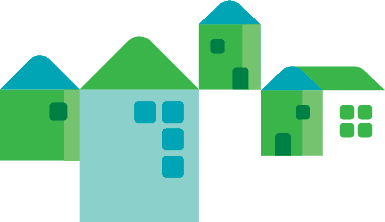
Hoarding
Trajectoire intersectorielle en insalubrité morbide Numerous cases are reported by different municipal services and health professionals concerning individuals who excessively accumulate objects or trash, causing them to live in unhealthy living conditions. Since 2011, many key players on the front lines ask themselves how to best intervene in cases of hoarding, noting that their respective efforts were not sufficiently supported.
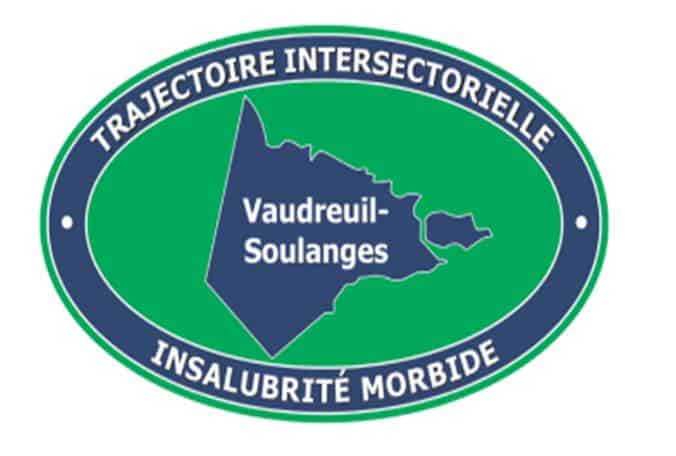
From this observation came the necessity of forming an intersectional work committee in 2013, made up of a host of institutional, municipal, and community participants. After rigourous work, the committee established the first intersectional interventions process for hoarding in the region of Vaudreuil-Soulanges in June 2015. Resulting from much consideration, this process created with an intersectional approach aims to create pathways to functional and effective solutions for resolving these cases. The key players involved pursued their work in order to ensure good implementation of this process. As of now, all 23 municipalities of the MRC de Vaudreuil-Soulanges have adopted a resolution signifying their adherence to the collaboration modalities in the framework of this process. Vaudreuil-Soulanges’ intersectional intervention process for hoarding is the process by which a hoarding situation will be treated with regards to prevention, screening, references, and access to hoarding assistance services through evaluation and concerted interventions. The general goal is to clarify the terms, roles, and responsibilities of each authority, in order to create a common vision of actions to take in these cases. More specifically, it aims to correct or reduce the hoarding situation and improve the quality of life of the affected person as well as their family, to put useful tools in place for collaboration and, finally, to ensure that the laws in effect, as well as confidentiality, are respected.
About the Trajectoire Committee
Les contributeurs de la démarche sont les 23 municipalités de Vaudreuil-Soulanges, ainsi que l’Aiguillage, le Carrefour Bienveillance 50 +, le CISSS de la Montérégie-Ouest, la Coopérative des techniciens ambulanciers de la Montérégie, le Curateur public, la Direction de la Santé publique de la Montérégie, le Comité logement Valleyfield (Mon logement, mes droits), la MRC de Vaudreuil-Soulanges, la Sûreté du Québec et l’organisme le Tournant.
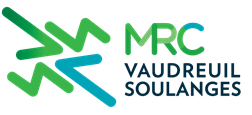
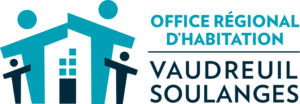 The Vaudreuil-Soulanges Regional Housing Office is responsible for managing and administering housing and these housing programs: Low-Rent Housing (HLM), Rent Supplement Program (PSL), Québec Affordable Housing (LAQ), Referral Service, and Accès Logis Québec for low- and moderate-income individuals and families in the territory.
The Vaudreuil-Soulanges Regional Housing Office is responsible for managing and administering housing and these housing programs: Low-Rent Housing (HLM), Rent Supplement Program (PSL), Québec Affordable Housing (LAQ), Referral Service, and Accès Logis Québec for low- and moderate-income individuals and families in the territory.